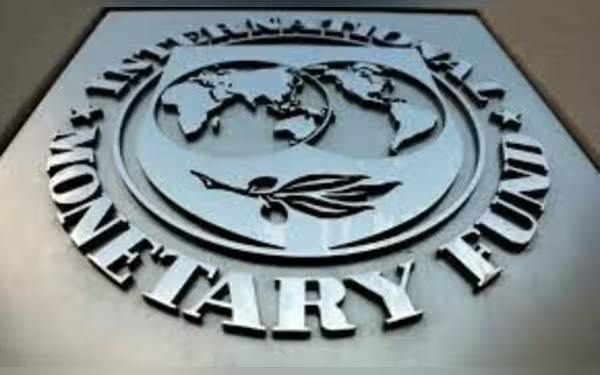Saturday, November 16, 2024 08:34 PM
IMF Loan Programme for Pakistan: Key Reforms Required
- IMF approves $7 billion loan for Pakistan.
- Reforms essential for economic stability and growth.
- Focus on tax base and state-owned enterprise reforms.
 Image Credits: dawn
Image Credits: dawnThe IMF has approved a $7 billion loan for Pakistan, emphasizing the need for essential reforms to stabilize and grow the economy.
The International Monetary Fund (IMF) has recently approved a new loan programme worth $7 billion for Pakistan. This financial assistance is crucial for the country as it aims to implement essential reforms and sound policies that will help strengthen its economy. The IMF has emphasized that these reforms are necessary to tackle deep-rooted structural challenges and to promote inclusive and resilient growth.
In a statement, the IMF highlighted that the success of this loan programme heavily relies on the government's commitment to stabilizing the economy. The ongoing strategy includes creating conditions for sustainable growth, which is vital for the country's future. The IMF also pointed out that continued support from Pakistan's development and bilateral partners will play a significant role in the programme's success.
Pakistan has made notable progress in restoring economic stability, as indicated by the consistent policy implementation under the 2023-24 Standby Arrangement. The economy has shown signs of recovery, with growth rebounding to 2.4 percent in the fiscal year 2024, largely driven by agricultural activities. Additionally, inflation has significantly decreased, falling to single digits, thanks to tight fiscal and monetary policies.
The current account situation has been contained, and the foreign exchange market has remained calm, allowing the country to rebuild its reserve buffers. The State Bank of Pakistan has also been able to reduce the policy rate by 450 basis points since June, which reflects the positive impact of disinflation and improved domestic and external conditions.
As the government moves forward, it is focusing on key priorities under the new Extended Fund Facility (EFF)-supported programme. These priorities include rebuilding credibility in policymaking, ensuring macroeconomic sustainability through consistent implementation of sound policies, and broadening the tax base. Furthermore, the government aims to advance reforms that will enhance competition, productivity, and competitiveness in various sectors.
Reforming state-owned enterprises (SOEs) and improving public service provision, particularly in the energy sector, are also critical components of this strategy. Additionally, building climate resilience is essential to safeguard the economy against future challenges.
The IMF's loan programme represents a significant opportunity for Pakistan to address its economic challenges and lay the groundwork for sustainable growth. By focusing on sound policies and necessary reforms, the government can not only stabilize the economy but also create a more resilient future for its citizens. The path ahead may be challenging, but with commitment and cooperation, Pakistan can navigate these turbulent waters and emerge stronger.













